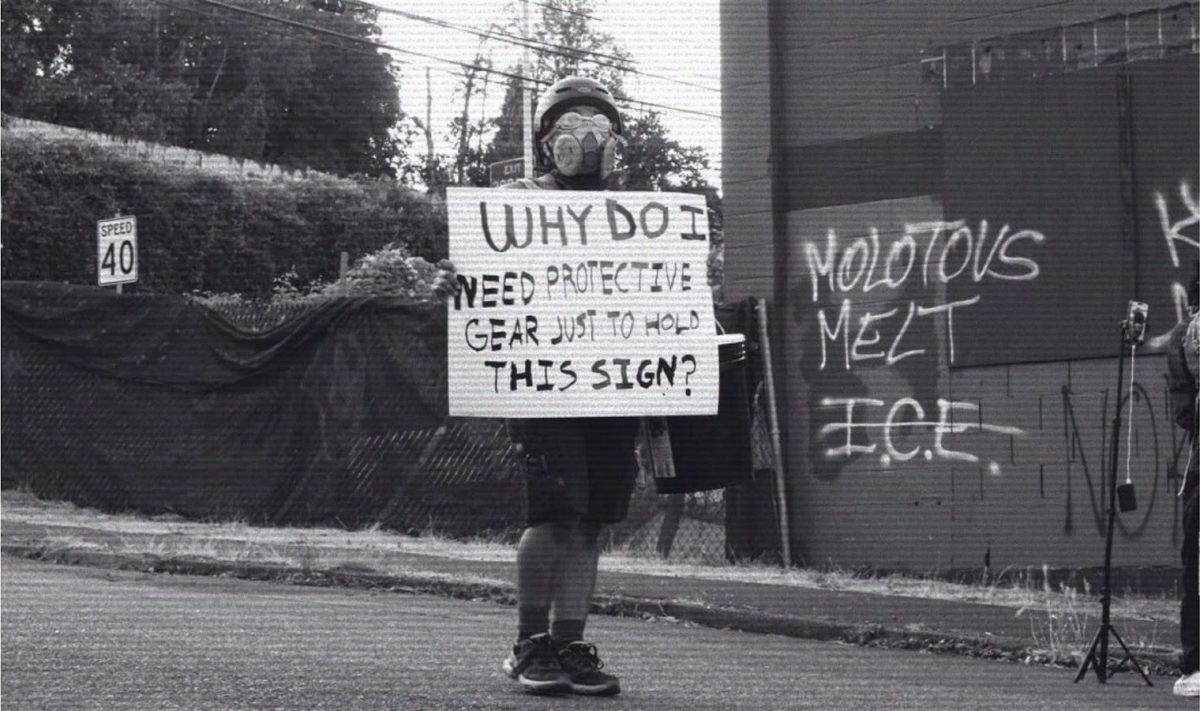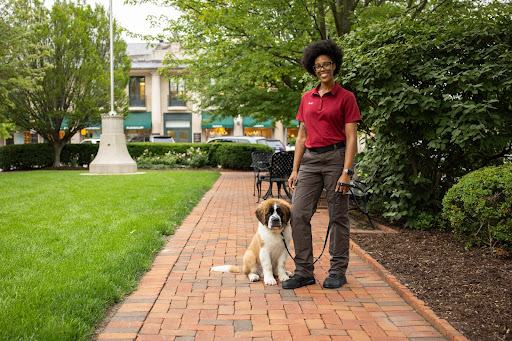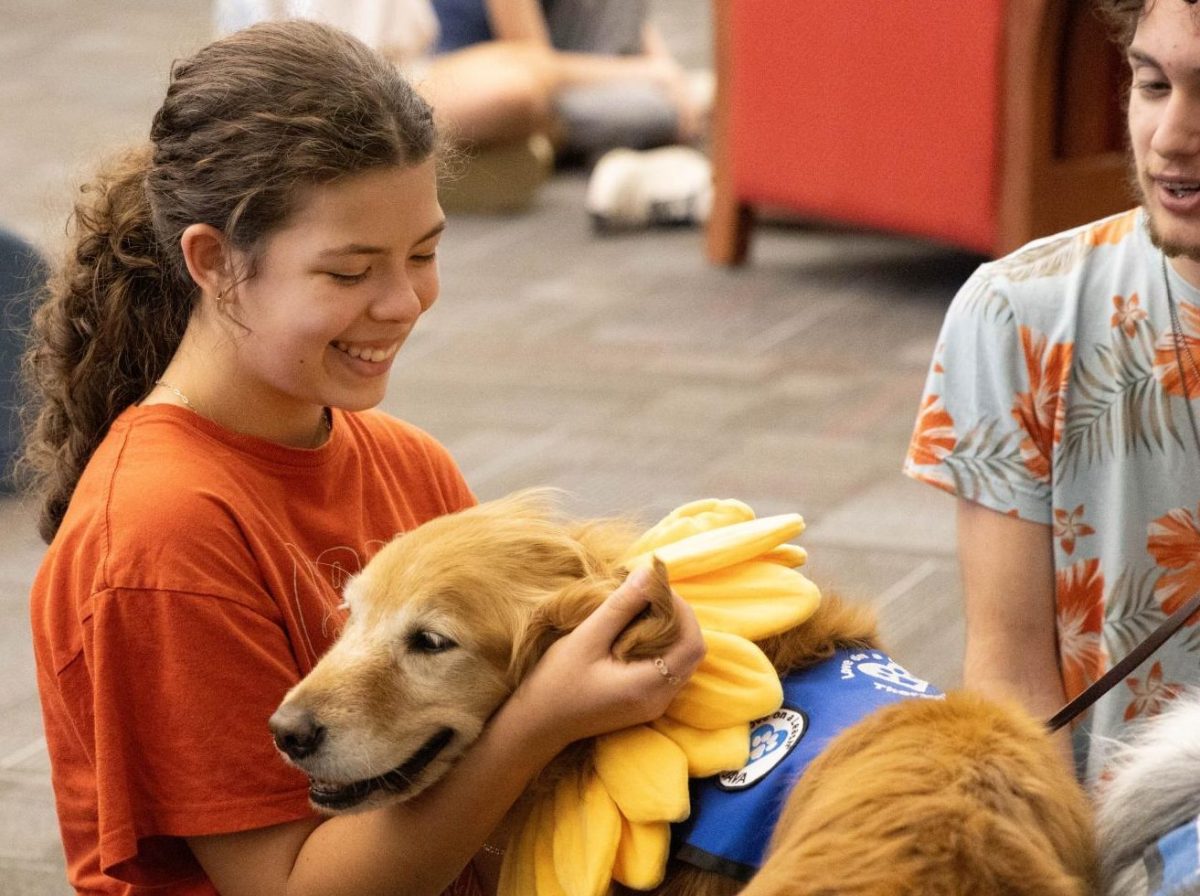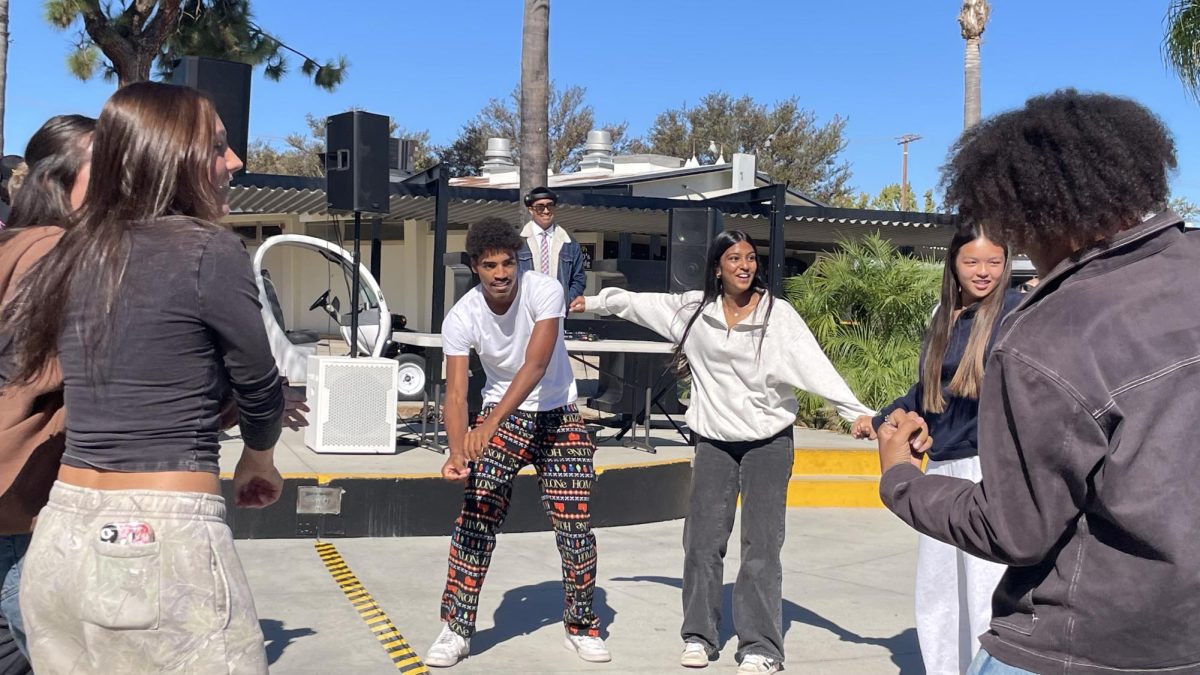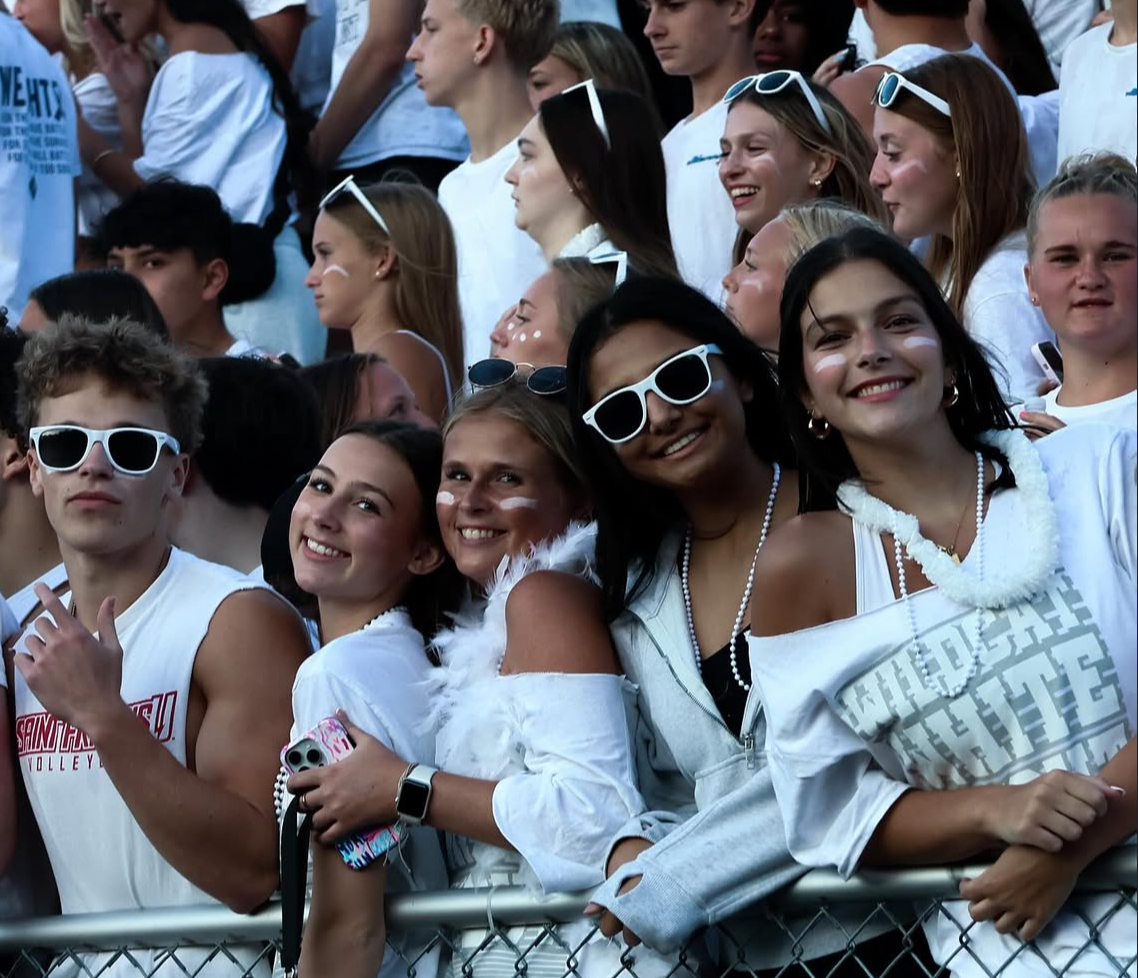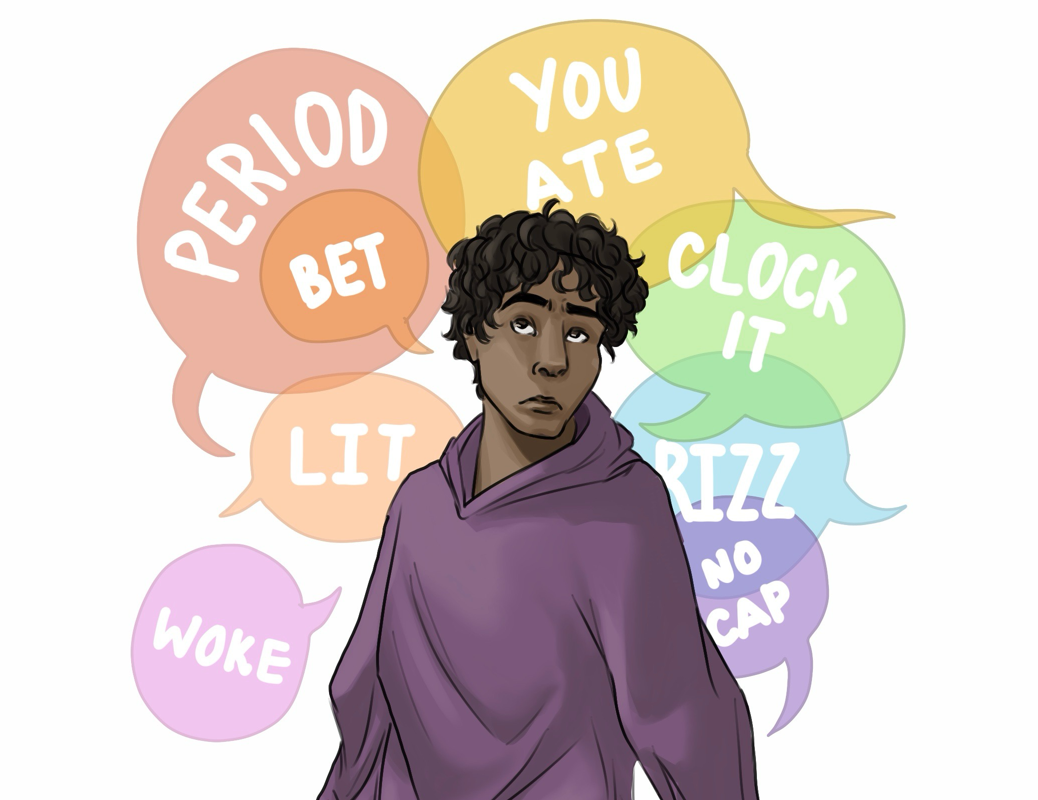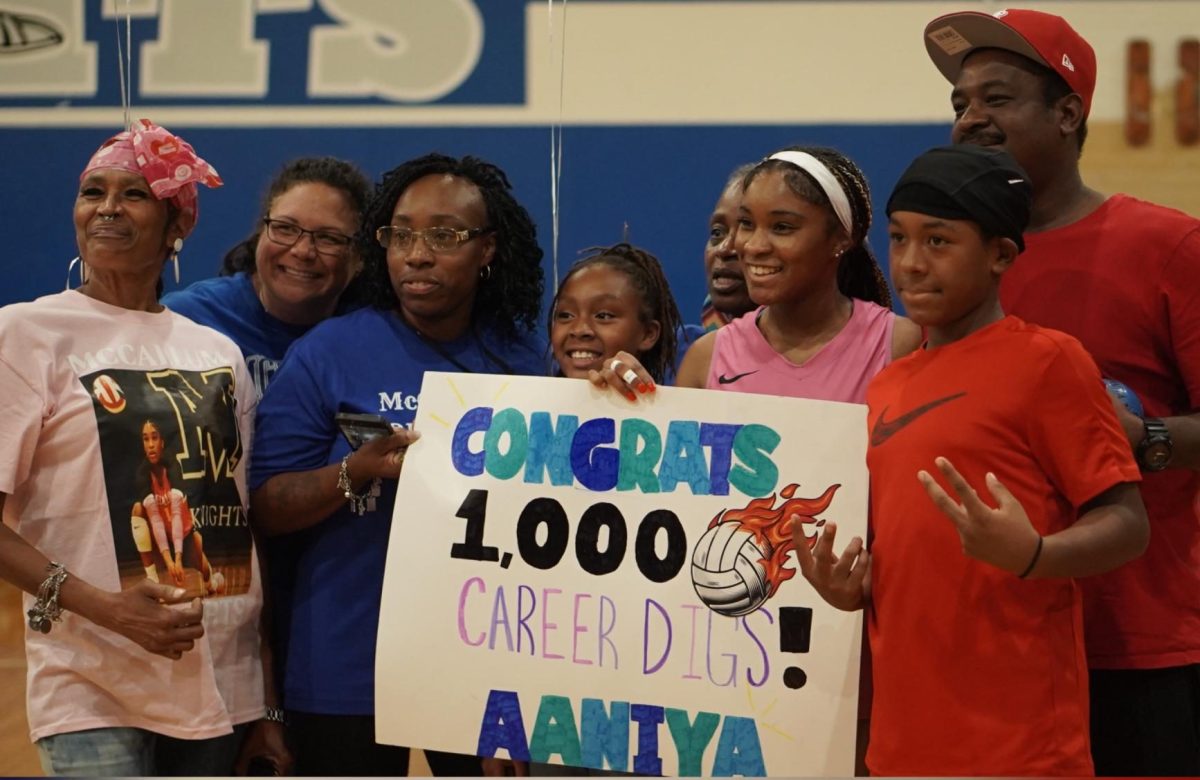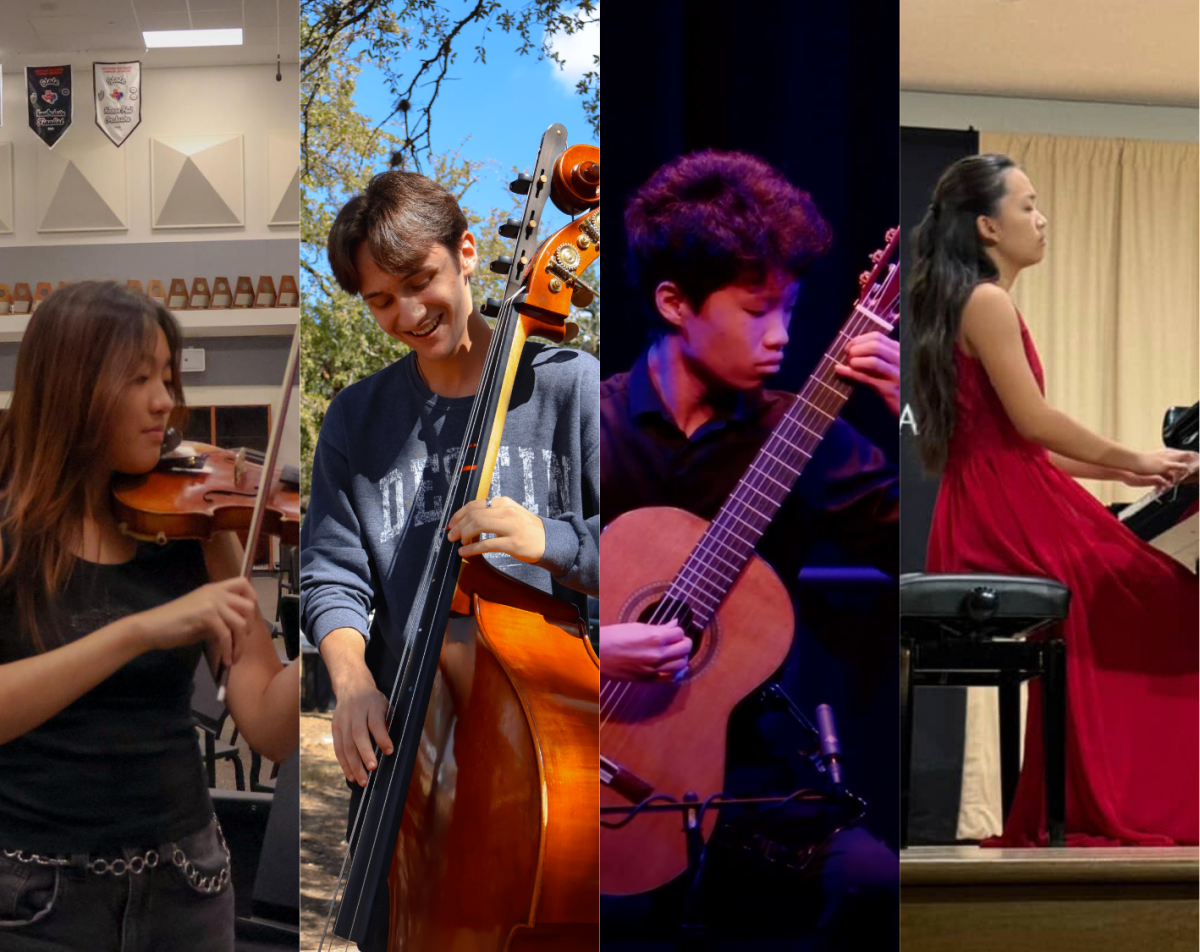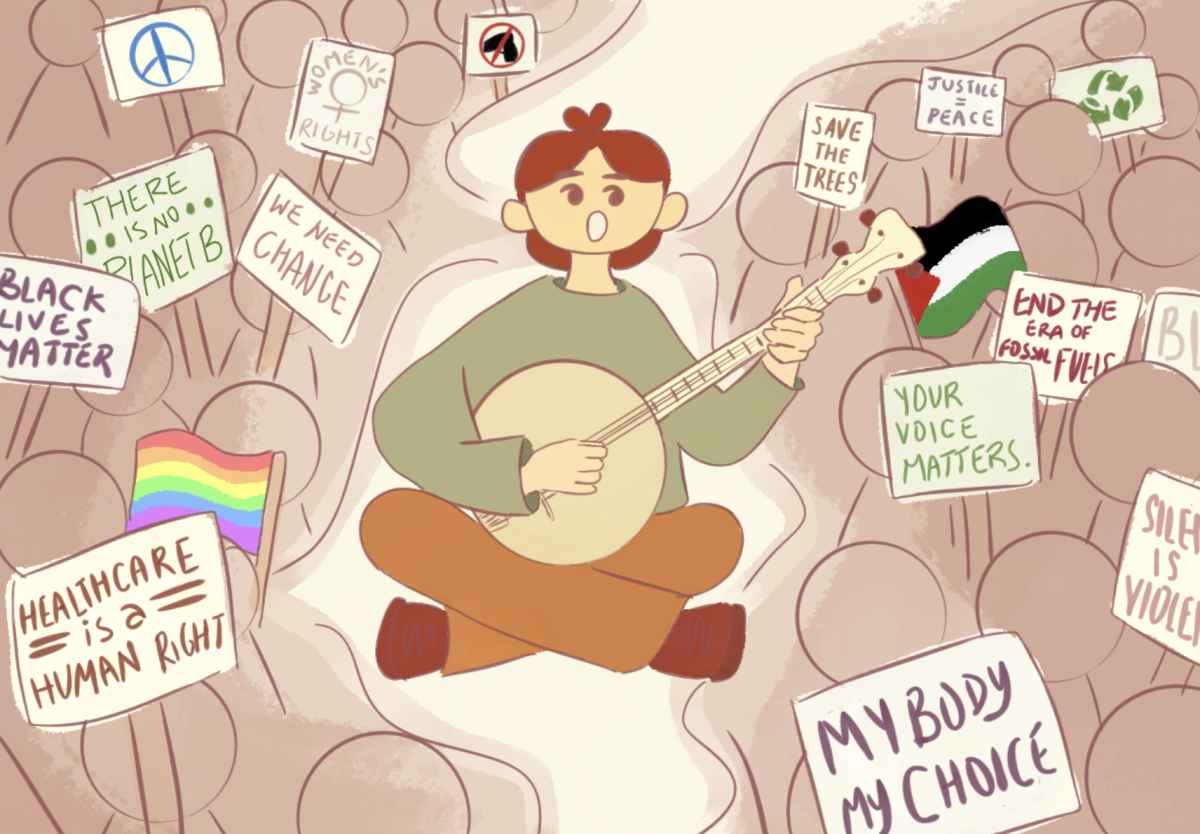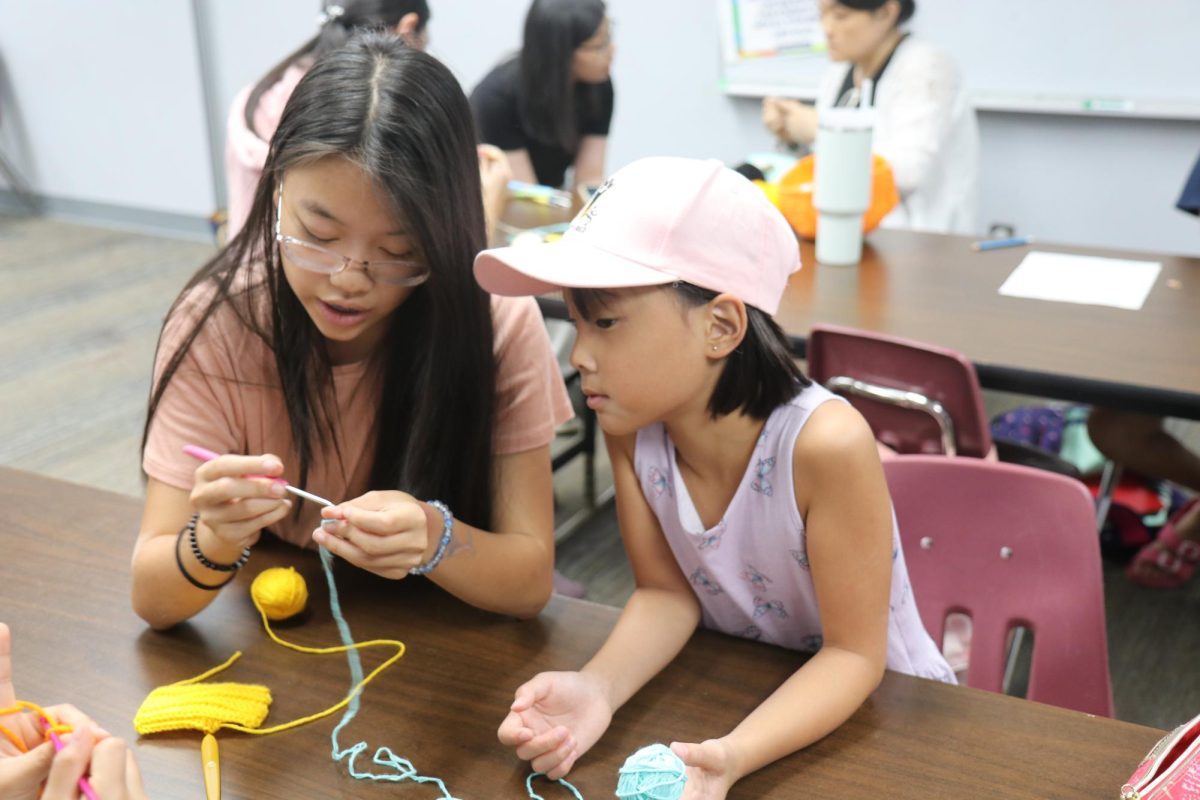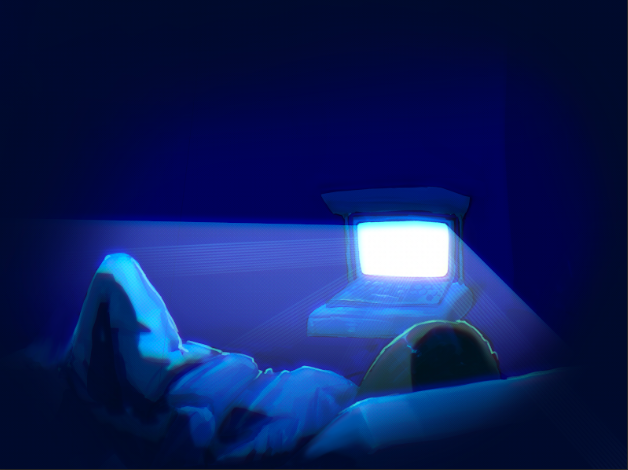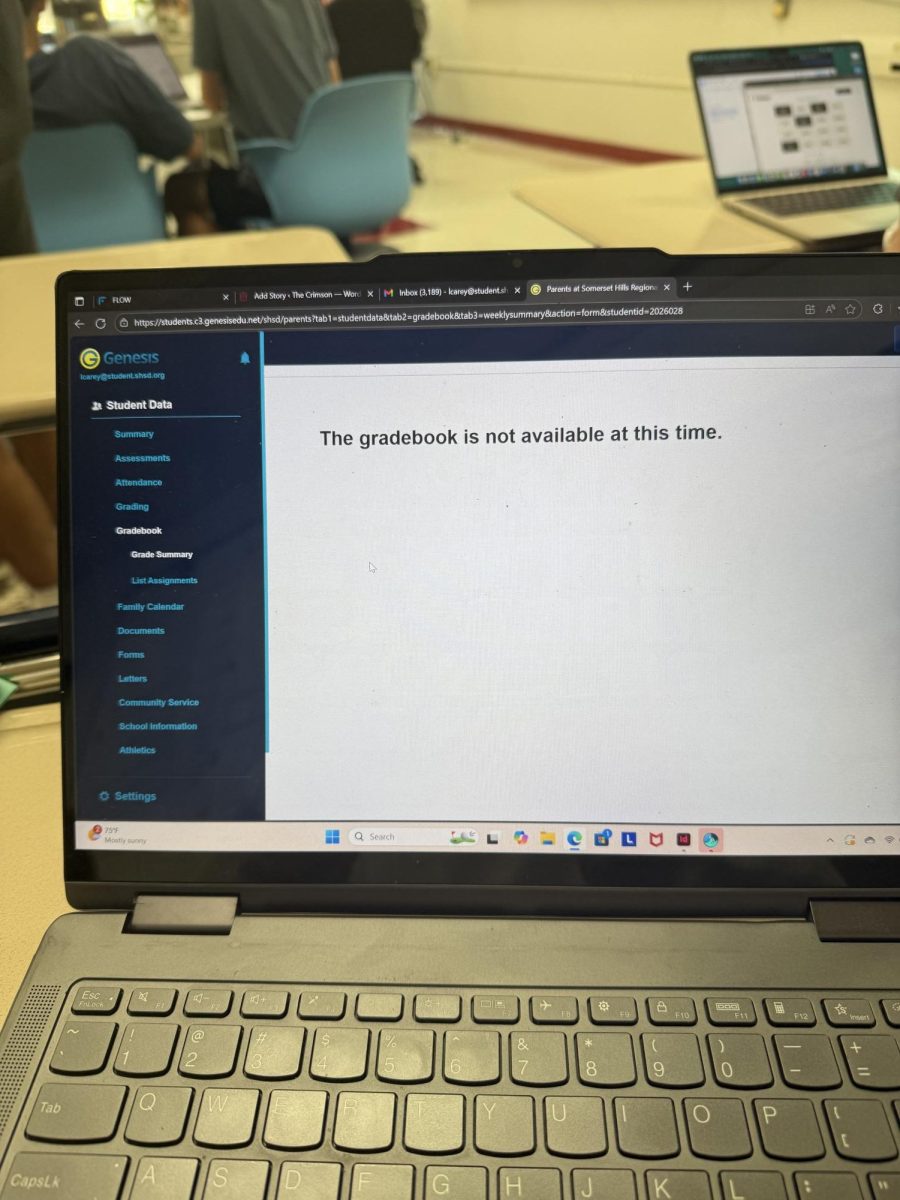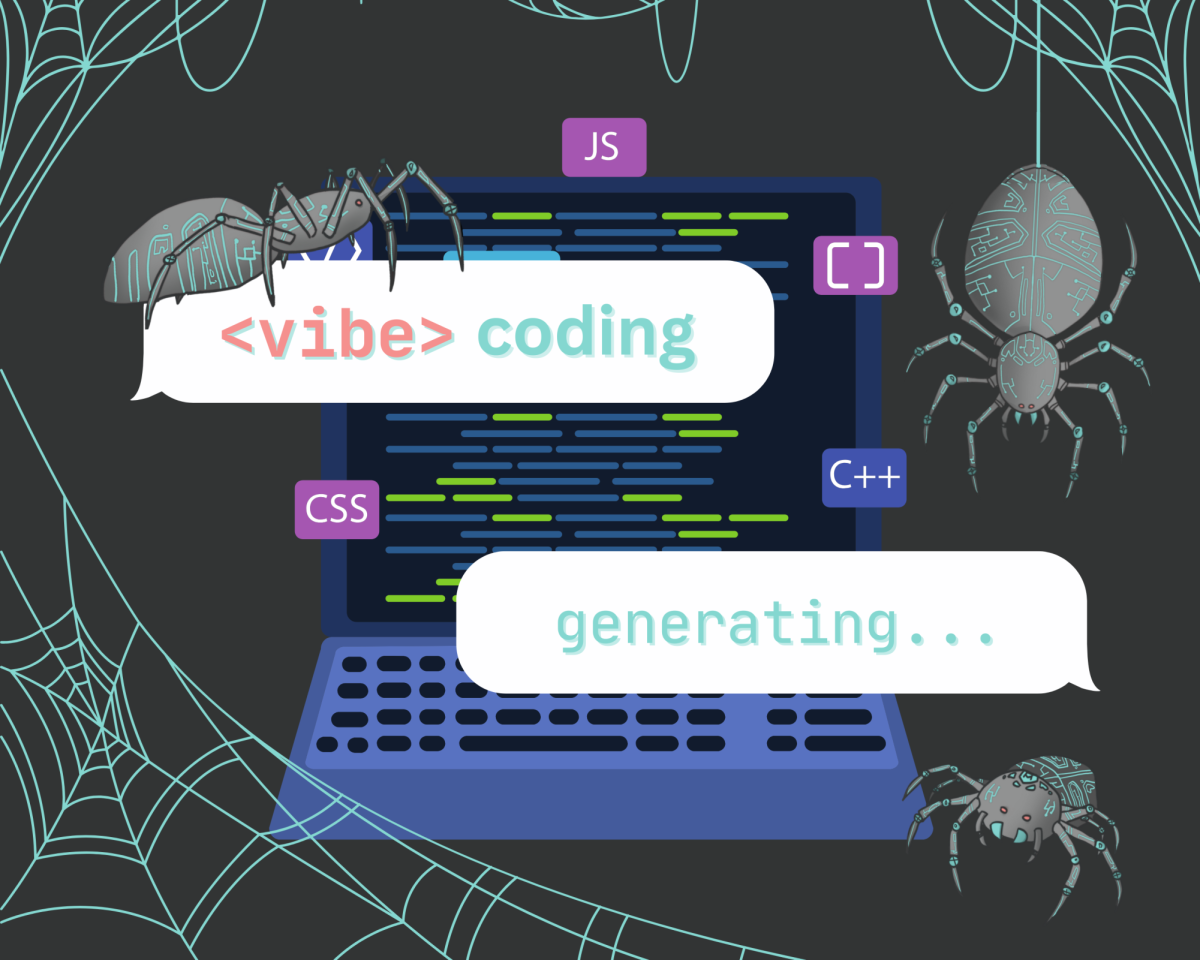Months ago, senior Jewish Student Connections (JSC) president Sam Allen came to senior Muslim Student Alliance (MSA) presidents Safia Sabir and Mohamed Zarooq with an idea. Their project to bring peaceful discussion about the Israel-Hamas war to the community, led by religious leaders, finally came to reality in front of a sizable crowd on Nov. 18.
With the guidance of Rabbi Joe Black from Temple Emanuel and Imam Muhammad Kolila from the Downtown Denver Islamic Center, the event attracted more than 100 interested peers to the Community Rooms.
The three sat down, and while social studies teacher and moderator Fletcher Woolsey asked questions, the leaders talked about what they could do to ensure more security on campus. Black commended the student initiative. As a senior Rabbi of a Denver synagogue, he’s interacted with many high schoolers, including Creek students, in his work.
“I was very impressed by the fact that The Jewish and Muslim clubs on campus saw the need and worked so closely together to pull this together,” he said. “The students were engaged. The issues raised were powerful. I left feeling hopeful and proud of all of the students.”
Organizers appreciated the contributions brought from respected local leaders.
“We heard from two very esteemed religious leaders that know their stuff and know what they’re talking about,” Allen said. “And we sat in a room and we proved that we can peacefully talk about a very charged topic. It’s not going to make any political change, but it’s going to give us more security here in our school environment.”
Kolila stressed the goal to teach and advise on how to deal with conflict. He also has local experience, working at a spiritual community center.
“I think the setting was put to be a discussion to share and learn,” he said. “Also to highlight what is in the minds, hearts and spirit of every person and to see where the person is coming from and how they understand the situation.”
Black thought it was especially important to promote communal respect, even through polarization. “While Imam Kolila and I do not agree on every issue, we do care about each other and want to show that it is possible to disagree and still see the holiness in one another,” he said.
There was no goal to change opinions, or even to debate the war in Gaza; the discussion focused on the local community, and leaders made the point of not featuring a Q&A.
“I highly recommended that we shouldn’t be making it like an open mic, because if we do that, …We might have unsafe discussions in the event,” Sabir said.
After a long selection process of looking for an unbiased moderator, the students chose Woolsey to sit by Black and Kolila to lead the discussion through questions.
“By having this as a moderated discussion, we kept our eye on the ball, instead of spinning off into allegations of who is in the right and in the wrong in the conflict,” Woolsey said. “[It] only would have served to do what already happens every day in the media and on social media.”
Zarooq agreed, especially with what he’s seen in his own groups. “Especially with conflicting perspectives on the war, I feel like just having them come up and talk about themselves, it would cause an argument, potentially even a fight,” he said. “We just wanted to avoid that.”
Audience members could see that the format worked well for the contentious topic. “It can feel like a restricted conversation,” senior JSC member Andrew Melun said. “But at that same time again, there are students in the crowd who are very passionate on both sides.”
Allen was struck by scenes of conflict in the spring, of widespread protests and encampments on college campuses. That’s when he came up with his idea for the discussion.
“I was like, ‘This could happen anywhere. What if this happened in my community?’” Allen said. “You can’t just sit back and do nothing at Creek whenever there’s an issue with antisemitism, Islamophobia, or whatever. There’s an email sent out by the district, and everybody forgets about it.”
He wanted to do more than send out an email.
“You need to be proactive. You need to get ahead of the extremists. You need to get ahead of the people that are hateful. You need to do something like this,” he said. “And it needs to be led by Jewish and Muslim students that believe in its cause. That’s the key.”
According to Allen, all the organizers had nerves before the event, that it would turn fiery, or that no one would come. But it wasn’t just Jews and Muslims that came to listen. Senior Avery Reitz was one of many impartial students who showed up to hear out the two perspectives.
“I’m a Christian, and so I obviously have a certain perspective and I have beliefs, but I would say that I came into this discussion from a non-partisan aspect,” Reitz said. “I liked how both of them agreed that we need to see each other as humans…that’s how we can stay together.”
Black saw the same benefits in talking about each other as people. “By talking about relationships, we build trust,” he said. “Had we focused only on the war, we would not have been able to demonstrate and facilitate the sense of connection and friendship that is essential if we are to build bridges, not fences.”
This story was originally published on Union Street Journal on November 20, 2024.

